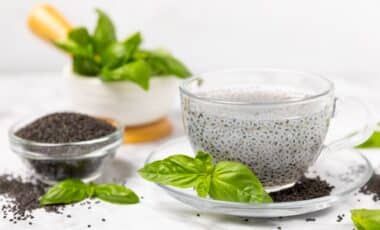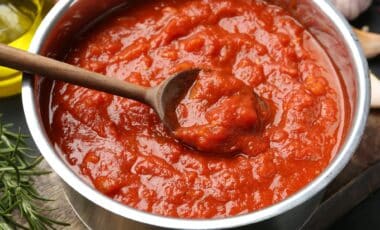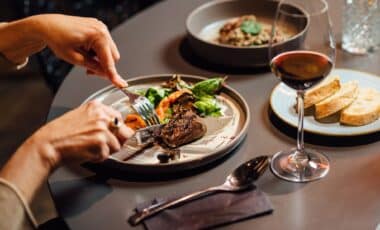 Royal Osha is now under the helm of chef Vichit Mukura
Royal Osha is now under the helm of chef Vichit Mukura
When opulently designed Osha opened in 2014 as the Bangkok outpost of the popular San Francisco restaurant, the buzz was all about what was probably the world’s priciest pad kaprao, overcooked wagyu on supersized battered basil leaves that left a bad taste in many a diner’s mouth. That reputation has been hard to shake off.
The eatery changed hands in 2018 and has since been run by sisters Supapitch and Kewaline Pithayanukul, the latter also a chef, who added Royal to its moniker. But despite improvements in the kitchen that returned the focus to the food, the undeserved reputation of bling and pretence over substance hung over the restaurant. Two editions after the change, even the city’s celebrated red guide failed to notice that the restaurant had cut its ties with the original operation.
Chef Vichit Mukura’s mission is to change that. “It’ll be completely like that in a five-star hotel,” says one of the most respected veterans of Thai fine dining, whose long tenure at the Mandarin Oriental will forever mark his career. He admits that it was not an easy decision to leave the iconic hotel. “They were like family and the owner was very nice. But it was time to go. I’d been there 27 years. I wanted to leave before I got too old, before I turned 60. I wanted to do something else with my long experience.”
 Chef Vichit during his Mandarin Oriental days
Chef Vichit during his Mandarin Oriental days
When he left Sala Rim Naam, the hotel’s flagship Thai restaurant, that something else was Khao, which started as an exclusive chef’s table and later expanded to table service and a second location. The Pithayanukul sisters were huge fans and dined there often. They courted him but initially Vichit says he politely declined. “I had a restaurant, but they were persistent and came back until I relented.” He took over as executive chef and three months ago launched a new chef’s table at Royal Osha in a specially built extension.
“We still have a lot of things to change,” he says candidly. “Cooking techniques, recipes, purchasing.” He acknowledges that developing the new tasting menu and changing the à la carte offerings in the main dining room are very much works in progress. Fortunately, he doesn’t have to alter everything. “The team here is very good,” he notes, “but one month re-training is not enough. I also need to learn what the owners’ hearts are set on because we have to walk together. They have the passion to do something for the country through its culinary traditions,” he says.
Vichit has also seized the opportunity of taking over a beautiful restaurant with room to grow. “It would take a lot of money to do something like this from scratch,” he observes. The Pithayanukuls are not shy about their ambitions. Once the Bangkok restaurant has proven itself, they’d like to take the brand overseas to London and New York, for starters. And while Royal Osha is resolutely Thai, the chef draws on his vast international experience. In fact, when discussing with the owners what direction to take, he suggested they use his career as a blueprint.
 One of the country’s most respected veterans of Thai fine dining
One of the country’s most respected veterans of Thai fine dining
That culinary background encompasses Chinese, French, Japanese and of course Thai food—and it was acquired the hard way through working in kitchens around the world. “The world is a much smaller place now though,” the seasoned chef says. “Young cooks can watch YouTube to glean techniques from all over the place but in the past you had to go to the country of origin to learn the real thing. When you worked with some chef in London, Paris or Tokyo, it was a chance to ‘buff yourself up’, make yourself shinier.”
And shine Vichit did. “Food is like culture for me,” he says and points to nouvelle and molecular cuisines as trends that reinterpreted that culture. But they have their limits. “Modern is a good thing but you need to keep traditional tastes. You can change up the presentation but you need to maintain the origins of the cuisine.” And he issues a stern warning to anyone who thinks there are shortcuts. “You can’t learn this in one or two years, you need to practise for a long time to get to the roots of Thai food and ingredient profiles.”
 His specialities are elegant in taste and style
His specialities are elegant in taste and style
To this day the 58-year-old remembers the lessons that his first and most important teacher taught him. “My mother. I learned from her a lot, not just about cooking. You need to manage and prep and plan. She taught me about timing and techniques such as steaming. I still make her curry pastes.” He also remembers how she rigged a string on a stick so her little boy could pull down tree branches to reach the best kaffir limes to make those pastes. Such memories are an influence today. “When I do something, I want it to be the best. I make everything with my brain and my heart. Only then can staff execute my vision.”
At Royal Osha Vichit can certainly follow his heart, whereas at the Mandarin he was answerable to managers and layers of bureaucracy that left little room for spontaneity. “In a hotel you have to share your ideas with the management and it can take months to get a response.” Working in a stand-alone restaurant is different, he explains. “Whatever I want to do, I can do. I have that freedom to implement my ideas without waiting for someone’s approval. Here if I want to serve a particular type of fish—even though the margin might be low—I can because I know it will make guests happy. And if they are happy they will return.”
Each of his dishes has a story. His take on goong kham wan, sweet morsels of barely grilled Spanish red prawns is served with a tomato water jelly, a fiery fish sauce and lime dressing and topped with fish eggs and truffle, a dish he first cooked at the Hôtel de Crillon in Paris. “I needed to adapt a Thai dish with an ingredient that was local and truffle fit the bill.” The result became one of his signature creations.
At the moment Vichit lives and breathes his restaurant, to the exclusion of much else. “I used to play squash but now I have no time. I still like to ride motorcycles on my days off, although those seem few and far between.” He also reaches beyond the restaurant with his cooking and fans can follow him on TV every Sunday morning. “My dream is to let young people know about real Thai food and how to cook in the traditional ways.” The programmes on Channel 32 are a platform to share his encyclopaedic knowledge of the culinary arts—everything from how to pick and buy to how to clean and cut in a particular way. Take collecting lemongrass from the garden: “Always pick from the outside. If you pick from the centre, you’ll kill the plant.”
 Chef Vichit draws on both his Thai as well as his vast international experience in the creation of his dishes
Chef Vichit draws on both his Thai as well as his vast international experience in the creation of his dishes
He baulks at the idea of being considered the most senior of Bangkok’s Thai fine dining chefs and says he is reluctant to eat out at other restaurants because “I get irked when I try something that looks good but tastes bad. I hate being disappointed.” He puts it simply: “If you want to eat tom yum goong, you should go to a place known for good tom yum goong. If you want to eat grilled prawns with tamarind sauce, you want a place that serves the freshest prawns.” He gives one perennial favourite, Pla Thong in his hometown of Pattaya. “I get good spiny lobster, fish, prawns, crab, just brilliant ingredients.” In Bangkok he favours Nguan Lee for an after-service bite to eat. “It used to be nearby in Langsuan but it has moved to Charoen Nakorn. I order vegetables and fried or steamed fish and it is perfect simplicity.”
It’s not a meal he can often indulge in at home. “In my house it’s all fruit, vegetables and tempeh. My daughter is very serious about vegan cuisine and my wife has been a vegetarian for eight or nine years—no meat, no seafood.” As a result he occasionally partakes in a plant-based diet. “On Mondays they prepare vegan food for me and I comment on the taste and everything. It’s interesting. You can’t use shrimp paste, right? So you substitute fermented tempeh made from different beans. It’s delicious.”
His daughter Piyarat hopes to follow in his footsteps, but in her own way. She has an online platform called Kina Kind Cuisine dedicated to the benefits of a vegan diet and hopes to open a brick-and-mortar restaurant in Pattaya next year. Vichit welcomes her different approach, and knows that food evolves over time. “If you want to be a chef, you need to understand our culture. The culture of our cuisine. You need to learn a lot. The history of food grows generation by generation.”
See also: Four Delicious Decades Of Blue Elephant






